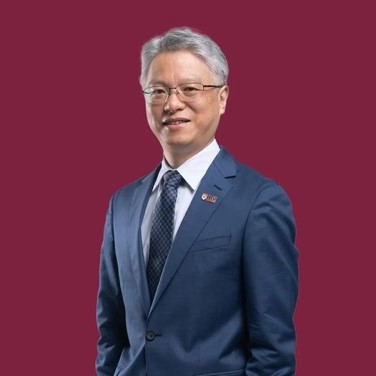Keynote III: AI and Digital Infrastructure for a Sustainable Future: A Tale of Twin Transition

Dr. Yonggang Wen
Computer Science and Engineering, Nanyang Technological University (NTU), Singapore
Web: https://personal.ntu.edu.sg/ygwen/
Abstract
The advent of generative AI, exemplified by large language models (LLM) such as ChatGPT, has heralded a new era of technological innovation with profound societal implications. However, the fast growth of AI systems has prompted concerns regarding their environmental impact, particularly in terms of energy consumption and carbon emissions. As the demand for AI continues to surge, the construction of large-scale AI data centers (AIDCs) is poised to escalate, exacerbating the strain on global energy resources. In this talk, we present a narrative of twin transition, wherein digitalization and sustainability reinforces each other. We introduce a dual paradigm of sustainability by AI and AI for sustainability, delving into the intricacies of their environmental ramifications and transformative potential. Firstly, we undertake a rigorous analysis and modelling of the electricity consumption and carbon emissions attributable to large language models (e.g., GPT, PaLM and LLaMa), taking into account the evolving landscape of datacentre sustainability. Our investigation extends to forecasting future energy trends for generative AI across both training and inference phases. Cost models to leverage alternative energy sources to power future AIDCs are also presented. Secondly, we advocate for harnessing advanced AI capabilities to catalyse the transition towards sustainable industrial practices. Through the exemplar of training digital twins for AIDCs, we demonstrate how AI-driven optimization strategies can significantly mitigate energy consumption and carbon emissions, thereby fostering eco-friendly operations. Our findings indicate that AI-guided cooling optimization, facilitated by the digital twin framework, can yield substantial reductions in design costs and carbon emissions. Lastly, we introduce "The AI Wears PRADA," a comprehensive framework that integrates Platforms, Researchers, Algorithms, Data, and Applications to orchestrate a unified AI ecosystem. By leveraging this holistic approach, we aspire to foster the efficient utilization of AIDCs and facilitate the seamless integration of AI technologies into sustainable development initiatives, to propel the accelerate growth of digital economy and GDP.
Biography
Yonggang Wen is a Professor and President’s Chair in Computer Science and Engineering at Nanyang Technological University (NTU), Singapore. He serves as the Associate Provost (Graduate Education) and Dean of Graduate College at NTU Singapore. Previously he has served as the Associate Vice President (Capability Building) at President’s Office (2023),the Associate Dean (Research) at College of Engineering(2018-2023), the acting Director for Nanyang Technopreneurship Center (NTC) (2017-2019) and the Assistant Chair (Innovation) at the School of Computer Science and Engineering (2016-2018), all at NTU Singapore. He received his PhD degree in Electrical Engineering and Computer Science (minor in Western Literature) from Massachusetts Institute of Technology (MIT), Cambridge, USA, in 2008. Dr. Wen has published over 300 papers in top journals and prestigious conferences. His systems research has gained global recognitions. His work in Multi-Screen Cloud Social TV has been featured by global media (more than 1600 news articles from over 29 countries) and received ASEAN ICT Award 2013 (Gold Medal). His work on Cognitive Digital Twin for Data Centre, has won the 2015 Data Centre Dynamics Awards – APAC (the ‘Oscar’ award of data centre industry), 2016 ASEAN ICT Awards (Gold Medal), 2020 IEEE TCCPS Industrial Technical Excellence Award, 2021 W.Media APAC Cloud and Datacenter Technology Leader Award, and 2022 Singapore Computer Society Digital Achiever Tech Leader Award. He was the winner of 2019 Nanyang Research Award and the sole winner of 2016 Nanyang Awards for Innovation and Entrepreneurship, both of which are the highest recognition at NTU. He is a co-recipient of multiple Best Paper Awards from top journals, including 2019 IEEE TCSVT and 2015 IEEE Multimedia, and at international conferences, including 2023 ASPLOS, 2016 IEEE Globecom, 2016 IEEE Infocom MuSIC Workshop, 2015 EAI Chinacom, 2014 IEEE WCSP, 2013 IEEE Globecom and 2012 IEEE EUC. He is the Editor in Chief of IEEE Transactions on Multimedia (TMM), serves or has served on editorial boards for multiple IEEE and ACM transactions, and was the elected Chair for IEEE ComSoc Multimedia Communication Technical Committee (2014-2016). His research interests include cloud computing, green data center, big data analytics, multimedia network and mobile computing. He is a Fellow of IEEE and Singapore Academy of Engineering, and an ACM Distinguished Member.
Workshops
News
-
Jan 26, 2025
Web site is up.
-
Jan 26, 2025
Call for Papers published.
Important Days
-
August 1, 2025Paper Submission Due -
August 20, 2025
Paper Submission Due (firm)
-
October 3, 2025
Notification of Acceptance
-
November 3, 2025
Final Manuscript (Camera Ready)
Copyright © IEEE International Conference on Artificial Intelligence of Things (IEEE AIoT)


